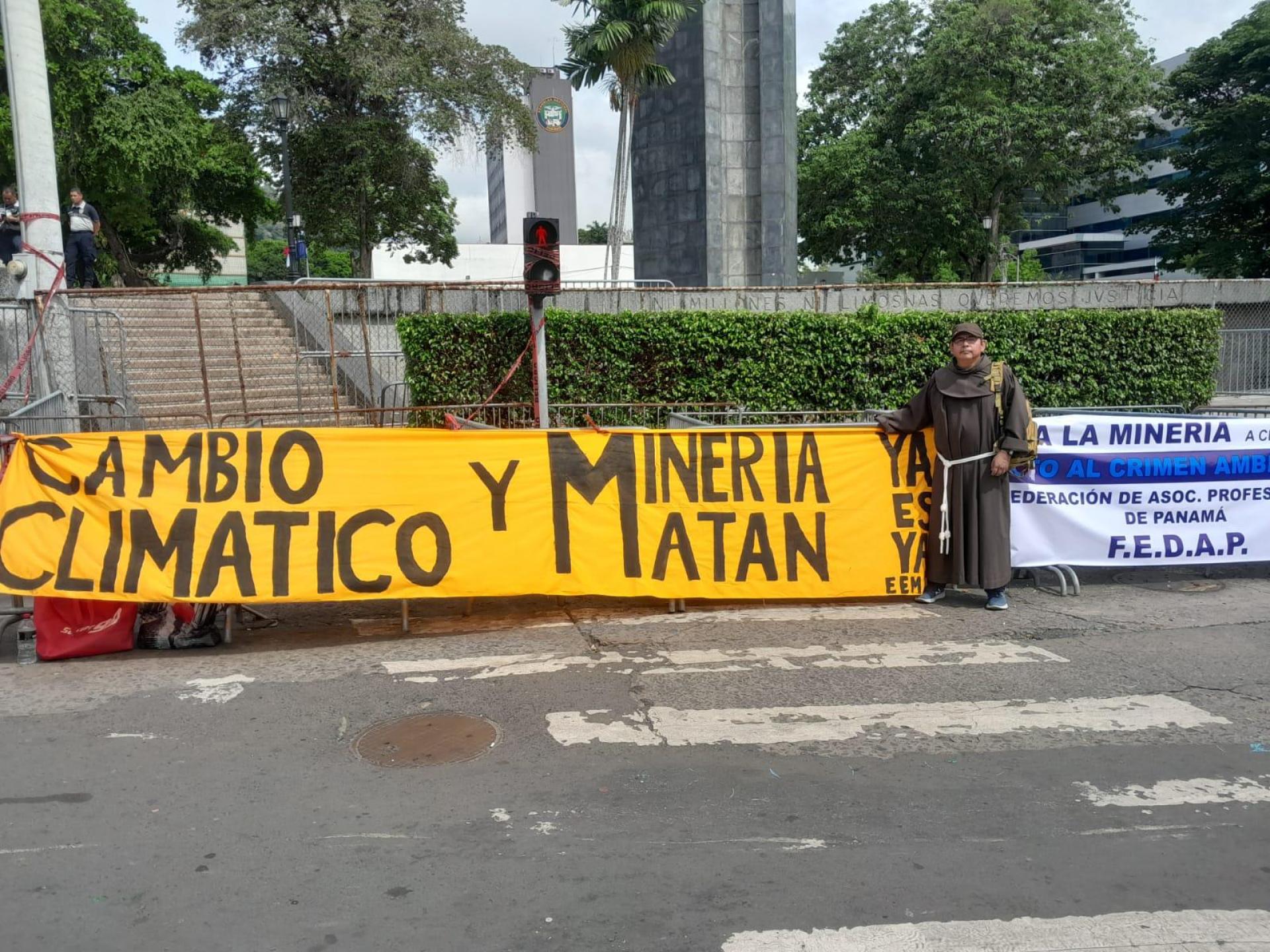Panama is one of the places on the Earth where the wonders of Creation can be better appreciated: the richness of the biodiversity accompanied by an abundance of truly surprising ecosystems over an area of approximately 75,000 square kilometers.
A naturalistic heritage, however, put at risk by extractivism, a recently coined term that aims to denote the extraction of all the natural resources of a place and their export elsewhere.
When, in October 2023, the Panamanian government entered into an agreement on copper mining with a foreign mining company, the population, supported by the local and continental Church, rebelled, in the name of defending the common home.
In this story the friars minor have also played and continue to play their part courageously.
La Pintada is a territory located in the province of Coclé, in the central area of the country and about 60 kilometers from the Pacific Ocean. Located on one of the entrances to the Mesoamerican rainforest, the parish of Our Lady of Candelaria has hosted the Rivotorto Fraternity since 1987: the friars minor serves around 86 rural communities, in a rainy territory, rich in water, but in which access to drinking water is rather difficult.
From the beginning, the brothers have been committed to caring for and defending the biodiversity, ecosystems and territories, the heritage of the families and of Panama itself. They organized activities to form the awareness and ecological commitment of the population, through formation meetings, patronal celebrations focused on integral ecology, walks in places emblematic of their ecosystem, forums on water and demonstrations against the extractionism and the growing – and unfortunately devastating – mining economy which is “invading” the country.
Against the mining agreement signed by the government, the Episcopal Conference of Latin America and that of Panama also rose up: supported also by the voice of Pope Francis, who with Laudato si’ first and then Laudate Deum launched the cry on the climatic emergency in favor of the defense of the common home, the bishops both local and on the continent have supported the population’s protest.
On November 28 the state’s Supreme Court of Justice declared unconstitutional the law 1100 which regulates the mining contract, annulling it in fact. The religious communities of Panama heard this sentence with jubilation, hoping that, in the future, the populations will be able to participate in decisions regarding the use of the common heritage and so that a model of development based on the extractive industry which favors exclusively the most developed countries will not be imposed on them.
In this regard, Br René Flores, of the parish of Our Lady of Candelaria and who for years was involved in the Order’s JPIC (Justice, Peace and the Integrity of Creation) activities, affirms that development which generates negative environmental effects is not be in reality true development: “The world must face the environmental crisis starting from Christian theology” he said in an interview, “and we Franciscans believe that it is a Christian mandate to protect nature given by God”.
On February 22, at the University of St. Mary, Antiqua, the Panamanian Episcopal Conference presented the pastoral letter on integral ecology entitled, “Dear Panama”, in which we read: “In this reflection we do not offer technical solutions, but rather that which comes from our heart and from our faith in Christ Jesus. We do not want to impose criteria, but to share what arises from our reflection on the current reality in the light of the Gospel. We do not expect anyone to adopt our values and our proposals, but we invite you to reflect on them. As leaders of the Church which journeys in this territory, we present that which our love and sorrow for our beloved Panama tells us about our actions…We are trying to expose the ecological situation of our country, placing mining as the principal – and not only – sign of devastation. We rely on what we have heard, studied and observed. We will also speak on other situations that impact ecology.” (nn.6-7).
We entrust ourselves to the Lord – and we trust in humanity – so that this is truly a story with a happy ending.
